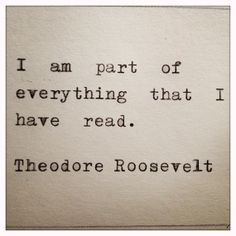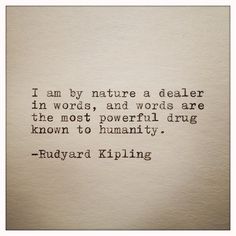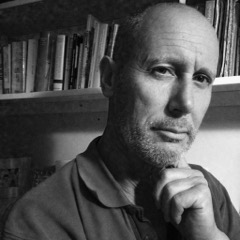Today, I’d like to welcome Peter Best to my blog. Peter was born in North Shields in the North East of England at the beginning of the sixties. Although the son of a shipyard worker, he was brought up in a mining community until the age of eight when, for some reason or another, he says that somebody decided that the community should be uprooted and moved to a place called Cramlington New Town on the outskirts of Newcastle.
After his time in school, he served an apprenticeship on building sites working as an electrician, which he hated by the way! However, it was on these building sites that he came across many different characters he was pleased to call his friends. Many of these so- called real people feature in his novels.
In 1996 he married for the second time and soon afterwards upped sticks and moved to Wiesbaden in Germany to help support his wife as she pushed at her career as a doctor. Peter fell in love with his new surroundings, especially the culture of neighbouring Bavaria.
It was after he moved back to England that his writing started to come together. Over the next few years Peter strung together his thoughts and ideas for The Burden of Truth and its sequel.
He now lives with his wife and daughter in a small seaside town in Essex called Frinton on Sea. Frinton, along with its neighbouring town, Walton on the Naze, both feature in his novel, The Burden of Truth.
Q: Peter, who gave you your first encouragement as a writer?
A very dear lady called Mrs Chicken, my English teacher at school. Fair enough it’s a long, long time ago but she really did push me. She always said I have a vibrant pen. I will never forget her as she was the one who started the writing club after school and she was determined I should attend. Even though I learned a great deal from her I wish I had listened more to her. Especially when it comes to grammar.
Q: The protagonist in your novel is Brent Sandler. How would you describe him?
When Brent is introduced, he is described as an arrogant, egocentric young man, and he is – without a doubt. He is also described as a ladies’ man and, as the story moves on, we find he is a bit of a beer-guzzling, gambler to boot. A large part of the story is how Brent moves on in his life. Early on in the story Brent takes a good look at his life and doesn’t like what he sees. You’ll have to read the story to see how and why his personality changes. It might not be as obvious as you think!
Q: Where is the book set and how did you decide on its setting?
The book is mainly set in London and India. The reason I picked India is simple: I wanted an exotic location and, to me, India is one of the most fascinating places in the world. Many of the places mentioned in my book are real places. However I must admit that some place names and locations are either fictional or are displaced. One scene takes place in a Buddhist monastery in Northern India, which I based on a monastery in the south of Sri Lanka. A few years back I went there for a visit and fell in love with the place. It just had to go into my story.

Click here to look inside or to buy
Q: What were the major areas you had to research?
The story starts with the terrible event of the Herald of Free Enterprise capsizing off Zeebrugge in Belgium. To do justice to what happened on that fateful day, I wanted to get everything just right, so I did extensive research. Amongst other bits and bobs I researched, were Buddhist teachings – easier said than done as there are many interpretations of what the Buddha actually said and taught. However I now have it on good authority that what is in the story ties up with the general thoughts of the Buddhist community.
Q: At what point in the writing of the book did you come up with its title?
The title The Burden of Truth actually came about after the book was completed. When I sent out the final draft to various people to get feedback, the title of the novel was The Karma of Tara. Although the feedback was positive, a few people thought I could improve on the title. So I put my thinking cap on and came up with the title; The Burden of Truth. On reflection, I feel this is far more in tune with the storyline.
Q: was your novel inspired by any real life events?
Absolutely! There are some instances in the book that are similar to what has happened to me in real life, especially the opening chapter. I wasn’t on the Herald of Free Enterprise, however, something similar happened to me many years ago. It shaped my life and my way of thinking about life in general.
Q: In which ways was writing the book transformative for you?
Writing this novel has certainly made me think more about what I am doing with my own life. It has reminded me of the promise I made to myself many years ago to live life to the full. As time has moved on, I lost track of that. It is very easy – perhaps too easy – to get drawn into modern life: going to work, coming home, making the evening meal, watching the telly then going to bed, just to start it all over again the next day. That’s what was starting to happen to me. One of the basic messages in my book is very simple; live life to the full and don’t waste it! As I sat down to write I asked myself: Well, are you practicing what you preach? The answer came back, No! So the answer to your question is that writing this book has put me back on track again to at least try and do something to develop my life. Only time will tell if it’s worked.
Of course, there are other ways my life has changed over the five years it has taken me to complete this project. During this time I have had a good look at the Buddhist religion and found it fascinating. Now I must admit I did have a bit of a head start as I am married to a Buddhist order member. However, I learned more and more about how Buddhism isn’t just a religion but helps you live your life in a more thoughtful and ethical way. It has rubbed off on me to a certain degree. I’m not claiming to be a Buddhist even though at one time I may well have done, even to the point of becoming a Buddhist mitra at one time. So once again to answer your question, has the writing this book transformed me? Absolutely!
Q: Hilary Mantel says that a Catholic upbringing is the only qualification a writer requires. Do you have any writing qualifications?
For me, the only qualification a writer requires is the ability to keep going. Writing can be extremely frustrating at times. Sometimes it gets me down a little when things are not going so well and I feel like throwing in the towel. However, when this happens I really have to give myself a big kick and start again. You really do need this self-discipline and determination to get things done.
Q: John Irving says that you can’t teach writing. You can only recognise what’s good and say ‘keep doing that.’ Do you think that’s true?
To a point, Yes! Over the past few years I have attended several writing seminars. Many of these classes have been about trying to teach writers how to develop a certain writing style. What I noticed was that many of the teachers had their very own opinions of what good writing is and they were trying to teach their pupils their own style of writing. I believe many writers have a natural way of writing. I don’t think we should try to teach pupils to write in a way that is foreign to them. Instead, we should look at a writer’s natural writing style and develop this.

Q: Do you use any writing software such as Scrivener, ByWord or Mars Edit?
When I first start to write something, I use an A4 notepad for my ideas. I tend to write very fast and very messy as my ideas come very thick and very fast. Sometimes conversations run through my head and I write as quickly as I possibly can. Later, I transfer this mess into something a bit more organised using Scrivener. I love Scrivener. It’s a brilliant piece of software for bringing all your ideas, characters, settings, etc. together.
Q: Is your writing plot-driven or character driven?
Both really. To have a good story you need many ingredients. I know some authors who build a plot around their characters. What I try to do is work on the plot first and build the characters to fit into that plot.
Q: Was it your intention to write a story with a message or a moral?
I’ve already mentioned my main message, however, there are a few smaller messages hidden between the lines. I haven’t hidden them so deeply that they’re impossible to get at. My only wish is that if the reader does find these messages, I hope they don’t just say, “Yeah found them,” and then move on. I hope that he or she thinks about them and then does something with them!
Q: Do you have a method for creating your characters’ names and what do you think makes a name believable?
I try to give characters names that go with their personalities. For example, if a character is a suave and dashing I might call him James. If he’s an ordinary type of chap I would give him a well-known name. Going back to my book The Burden of Truth, most of the Indian characters have been given Sanskrit names. One of the villains is called Ajit. Quite often throughout the story, he shouts the meaning of his name; “My name is Ajit. I am invincible, he who has not been conquered.”

Q: Do you feel under pressure to make your main characters likable?
To a point, yes! When I first wrote The Burden of Truth I penned Brent (The protagonist) as a very nasty piece of work. After I while I was not really happy with this as I didn’t want the reader to be put off by an unlikable character. The main point of the novel is how Brent’s character develops. I did a great deal of re-writing to get over the issue. He’s still a bit of a dodgy character but I like him.
Q: Some authors have one particular person in mind when they write. Do you have a muse – or perhaps an imaginary ideal reader?
I’ve got two. What I have tried to do is aim my novel at two different types of reader. The first is the type of person who would go into a bookshop and look for a good story but not have to think too much about it; just be entertained by it. Now I’m not going to mention my muse by name, as he is an old school friend. Also I’m sure he would be upset when I tell him I plotted the storyline without any of the deeper extras, I was always thinking of him.
The second set of readers are those wanting just that little bit more from a book. The people who, when they finish reading, are still thinking about the contents, the messages as well as a host of other things. Again I have used a very dear friend as a muse. Quite often I think of her and what she would say to me if she were reading my work.
Q: Have you ever found that a book you were reading was influencing your writing style?
Yes I have. I was asked to have a look at a crime novel a few months ago – a real whodunit. At the same time, I was working on an idea that I had, so there I was jotting down ideas for a sub plot, more of an answer to why a certain crime had been carried out – not so much as to who had done it. I noticed I was subconsciously turning this plot into the book I was reading. Pleased to say I didn’t and slowly brought it back to what I wanted in the first place. But yes, I was definitely swayed.
Q: What point of view do you find most to your liking: first person or third person?
Another easy one to answer. Third person is my preferred option. Even though I enjoy reading books written in the first person, writing in the first person doesn’t come naturally to me.
Q: How do you create and construct distinctly individual supporting characters?
Characters make or break a novel. Bringing sub characters into a novel gives us a great opportunity to develop some great individuals. Possibly because they don’t play a great part in the story, we can play as much as we like with them. There is one character in The Burden of Truth I didn’t even name, but I had some great fun writing him.
Q: “They really are evil bastards,” Anthony Horowitz, has said about Amazon. “I loathe them. I fear them. And I use them all the time because they’re wonderful.” Where do you stand?
I take my hat off to Amazon! OK, Amazon gets a lot of flack for one thing or another but we all must think of what they have done for the independent author. If it wasn’t for Amazon and a few others like them, many authors would stay unpublished and that would be a great shame. However, it’s not just authors that benefit! There’s a massive amount of talent out there with some fantastic books that, in my opinion, would do well with mainstream publishers, however, agents and publishers won’t take a gamble. The way I look at it, Amazon is great for me because, by doing what they’re doing for independent authors, it gives me, as a reader, the opportunity to purchase many fantastic books that probably wouldn’t have seen the light of day otherwise.
Q: What do you think the greatest advantage of self-publishing is?
Wow! Where do I start? There are many advantages with self-publishing. For me the greatest advantage is creative control. If I were to get a publishing deal I would be bound by constraints, first by the agent and then by the publisher. I don’t really want my story to be chopped and changed, edited, re-edited, so that its message is lost or diluted.

Q: Which professional services won’t you skimp on?
If we are to be taken seriously as self-publishers, we have to get our finished product as professional as something we would pull off the shelves at Waterstones. To do this we need help, and lots of it. There are two services which I won’t skimp on, the first being an editor. Most writers would agree that, in the process of self-editing, we become blind to our own mistakes. The second I would certainly recommend investing in is book cover design. We are writers, not graphic designers. However, before doing so, remember to weigh up the costs.
Q: What do you do when you’re not writing? Any hobbies or party tricks?
I really enjoy trying to play the harmonica. And if this writing lark doesn’t work out, at least I’ve got a harmonica and a cap!!!!
You can find out more about Peter on his website.


